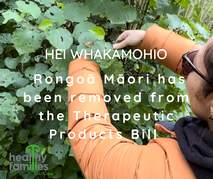Sign Up!Subscribe to our newsletter and receive our latest stories.
Archives
June 2024
Categories |
“We want all of Aotearoa to enjoy health promoting social and physical environments that enable healthy food and physical activity choices, being smokefree, reducing the harm from alcohol and increasing mental health resilience and wellbeing.”
Email: [email protected]
Web Design by SBWD


 RSS Feed
RSS Feed